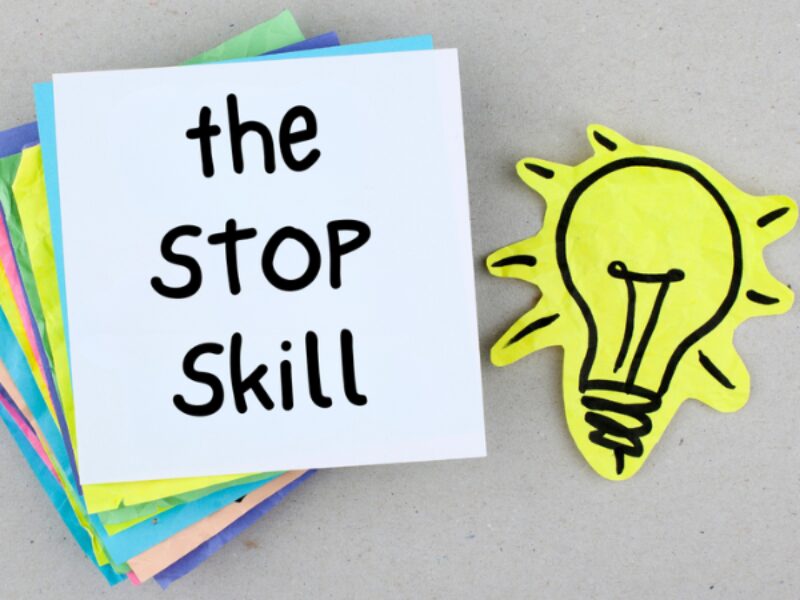The STOP Skill: A Quick Mental Health Tool for Kids

When your child is overwhelmed, anxious, or acting out, it can be hard to know what to do in the moment. Many parents and caregivers want to help but may not know how.
That’s why we sat down with Matilda, a Child and Youth Counsellor in our Starling Mental Health programs and asked her to share a simple but powerful strategy called the STOP skill – a tool that helps kids pause, reflect, and respond more calmly when emotions run high.
It’s part of Dialectical Behavior Therapy (DBT) and is one of the core distress tolerance strategies used in Starling’s mental health programs.
Distress tolerance is all about exploring and learning what tools we have when things seem out of control and unbearable. Child and Youth Counsellors in our programs teach kids how to access these tools so they don’t make choices that are impulsive or impact them negatively.
So, how does the STOP Skill work?
To use the STOP skill, spell out the word “stop” and follow these steps:
- S – Stop: Freeze. Don’t act on impulse.
- T – Take a step back: Breathe. Create space between feeling and action.
- O – Observe: Notice what’s happening inside and around you.
- P – Proceed mindfully: Choose your next step with intention.
Matilda shares that kids can use the STOP skill at any time, and it’s quick and easy to use.
It can help kids learn to pause, slow down, think through their feelings, and make a choice that supports their well-being rather than reacting in the emotional height of the moment.
What’s more is that kids can use this skill silently in their minds, whether they’re in class, at home, or with friends, without anyone knowing. It’s a valuable skill to keep in kids’ emotional toolbox, helping them move more mindfully through their day, one choice at a time.
It's Useful at Any Stage of Life:
The STOP skill is not just for kids; it’s helpful for adults, too. It reminds us that a small pause can make a big difference. You can try this simple skill at any time and see how it can help you move through the day more mindfully.
As a parent or caregiver, you can model the skill by practicing it yourself. The more kids see it in action, the more likely they are to use it when emotions run high.
If your child needs additional support managing emotions or behaviours, call Front Door to Child and Youth Mental Health at 519-749-2932.
Instagram Feed
“Since being housed, I have been able to work towards many of my goals, I have addressed my health concerns, and I have been able to strengthen many of my relationships.”












